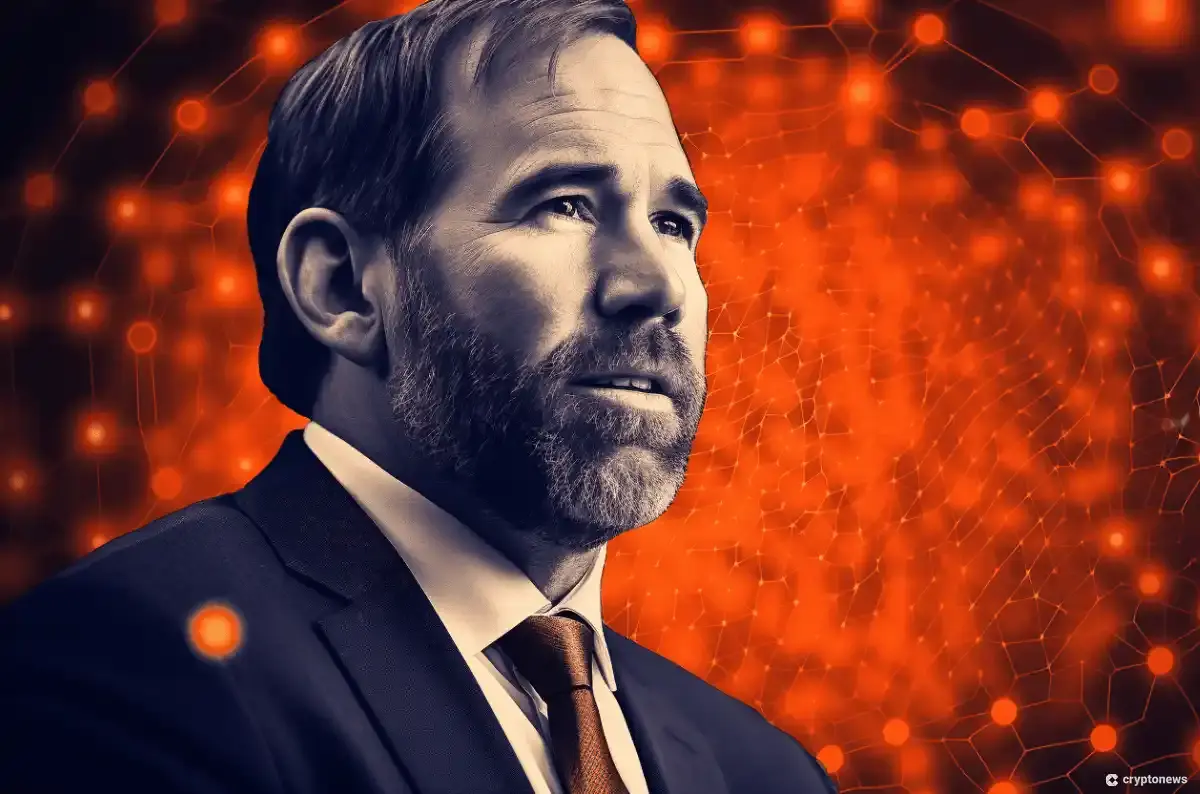Crypto NEWS
Brad Garlinghouse Cheers Pro-Crypto Candidates’ Success in U.S. 2024 Elections
Brad Garlinghouse Cheers Pro-Crypto Candidates’ Success in U.S. 2024 Elections
The growing influence of crypto voters is unmistakable, and no one is more eager to celebrate it than Brad Garlinghouse, the CEO of Ripple. In the wake of the 2024 U.S. elections, Garlinghouse has joined other crypto industry leaders in praising the success of pro-crypto candidates, suggesting that the political tide is shifting in favor of clearer, more favorable regulations.
With the election of several key figures—some of them from opposite ends of the political spectrum—Garlinghouse is now anticipating that U.S. policymakers will finally start to catch up with the digital asset industry’s needs. The ripple effect (no pun intended) could extend all the way to the ongoing legal battle between Ripple and the SEC, which has long loomed over the industry.
The Crypto Voter: Here to Stay
On Wednesday, Garlinghouse took to X (formerly Twitter) to celebrate the victories of prominent pro-crypto politicians and herald the power of the “crypto voter” in U.S. politics. “To everyone who doubted it: the crypto voter is here to stay, loud and clear!” Garlinghouse tweeted, reinforcing his belief that crypto’s growing political clout will be a game-changer.
The list of winners underscores this newfound bipartisan support. Among the standout names: Bernie Moreno, Ritchie Torres, Kirsten Gillibrand, and Andy Barr—all of whom have supported pro-crypto initiatives. In short, crypto policy is no longer a divisive issue confined to one side of the aisle. And that’s a big deal.
Garlinghouse’s message was clear: the crypto industry now has an influential voice at the ballot box. The election of these pro-crypto figures, regardless of political affiliation, signals that the digital asset sector has matured into an issue that transcends party lines.
What This Means for the Industry
For years, the crypto industry has struggled with regulatory ambiguity and a lack of consistent policy. This uncertainty has made it difficult for companies like Ripple to operate with confidence in the U.S. market, and it’s been a headache for the broader industry as well. However, the 2024 elections could mark a turning point.
With crypto-friendly candidates in office, Garlinghouse and others in the industry now hope for clearer, more predictable rules that could unlock the next phase of growth. The political landscape, once hostile or indifferent to crypto, now seems poised for a shift that could benefit the sector for years to come.
Moreover, the prospects for a resolution in the long-running Ripple vs. SEC lawsuit—one of the most significant legal cases in the history of the crypto industry—are looking brighter. A pro-crypto tilt in Congress and the executive branch might pave the way for more favorable legal outcomes and a general shift toward more pragmatic, industry-friendly regulations.
Ripple and the Broader Crypto Ecosystem: A New Era?
As Garlinghouse and others pointed out, the influence of the “crypto voter” is no longer a fringe element. It’s becoming an undeniable force in American politics, particularly in swing states where digital assets have gained significant traction among voters. With high-profile victories in key races, crypto supporters are now emboldened to push for policies that support blockchain innovation, protect investors, and ensure that America remains competitive in the global digital economy.
Brian Armstrong, CEO of Coinbase, shared Garlinghouse’s optimism. Echoing the sentiment that crypto is increasingly shaping voter priorities, Armstrong noted that the industry’s political influence was reaching new heights. “This election shows that crypto is no longer a niche issue. It’s mainstream,” Armstrong remarked, adding to the growing chorus of industry leaders who are cautiously optimistic about what’s to come.
The electoral shift could bring about a more stable regulatory environment, which, for an industry that has long been characterized by its volatility, would be a welcome change. Whether it’s through new laws or changes in the SEC’s approach, the hope is that these victories will translate into action that benefits the entire ecosystem.
Conclusion: A New Chapter for Crypto in America
If there was any lingering doubt that crypto was a flash-in-the-pan movement or a bubble waiting to burst, Wednesday’s celebrations suggest those doubts are fading fast. The 2024 elections have demonstrated that crypto is now a serious political issue, with bipartisan support and growing momentum.
As Ripple, Coinbase, and other crypto giants look to the future, they are hopeful that the next few years will bring not only clearer regulations but also an industry that can finally move forward without the constant uncertainty that has held it back for so long. With the power of the crypto voter now firmly in place, it’s safe to say the industry will be watching closely as Washington adjusts to this new political reality. The next chapter of crypto in the U.S. is only just beginning—and it’s looking a lot more promising than it did a year ago.


















